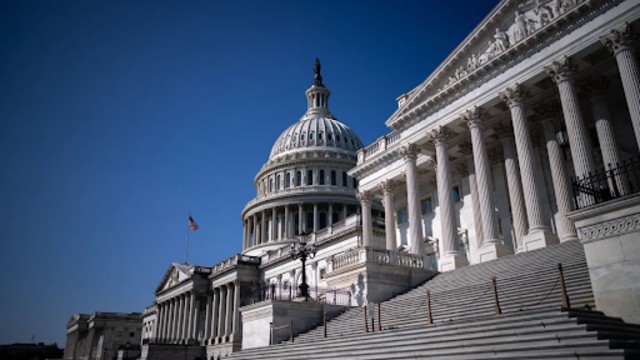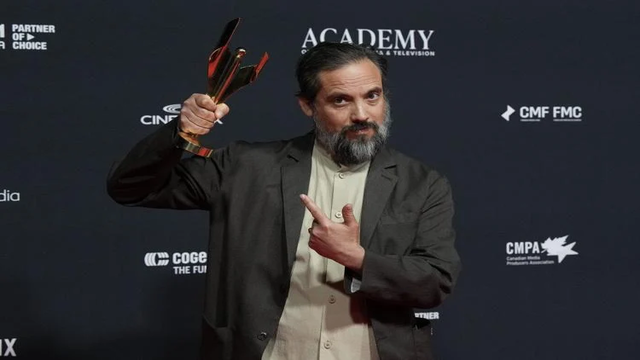
The Creative Coalition will present the blueprint it formulated at its National Arts Advocacy Summit to Congress in April via THR.
The Creative Coalition (TCC) held its first-ever National Arts Advocacy Summit in Las Vegas’ Summerlin community on February 12-13. Dubbed the “Davos of the Arts in the Desert,” the invite-only event gathered 50 influential figures from the arts and business sectors.
The primary objective? Developing a strategic plan to advocate for arts funding on Capitol Hill. With $207 million allocated for the National Endowment for the Arts (NEA) at stake, the summit aimed to shape a clear message for lawmakers.
A Step Toward Action
The discussions at the summit will fuel TCC’s upcoming “Right to Bear Arts Day” in Washington, D.C., set for late April. The delegation will meet with key decision-makers and even visit the White House to push for continued arts funding.
“Our vision for the summit was accurate,” said Robin Bronk, CEO of TCC. “It was everything we hoped for—bringing different leaders together to speak with one voice.”
A Unique Gathering in the Desert
The summit kicked off with a hike at Red Rock Canyon before attendees convened at Harlo Steakhouse for dinner. The guest list featured an impressive mix of actors, musicians, entertainment executives, and media figures. Notable attendees included:
- Tim Daly (Madam Secretary), TCC President
- LeVar Burton (Star Trek: The Next Generation)
- Harry Hamlin (80 for Brady)
- Rob O’Neill, Paramount Global SVP
- Jessica Sharzer, Executive Producer (American Horror Story)
- Bill Prady, Executive Producer (The Big Bang Theory)
- Iain Armitage (Young Sheldon)
- Gloria Calderón Kellett (With Love)
- Retta (Good Girls)
- Peri Gilpin (Frasier)
The following day, attendees gathered at Red Rock Resort for an intensive eight-hour strategy session focused on arts education, funding, and policy. The discussions emphasized the economic and workforce benefits of a strong arts sector.
A Longstanding Fight for Arts Funding
TCC has been at the forefront of arts advocacy since 1989. Founded by Christopher Reeve, Susan Sarandon, Ron Silver, and Alec Baldwin, the organization emerged in response to threats against NEA funding during the Reagan administration.
Recent policy shifts have intensified concerns. In January, the Trump administration proposed cutting NEA funding for underserved communities. With political control over arts institutions making headlines, the summit’s discussions took on even greater urgency.
The Economic Impact of the Arts
Legislative Director Andy Buczek set the stage with a compelling overview of the NEA’s impact. Established in 1965, the NEA provides grants to organizations across all 50 states and 435 congressional districts.
Key figures from TCC’s research:
- The arts sector contributed $1.1 trillion to the U.S. economy in 2022.
- 5.2 million workers are employed in arts and culture industries.
- Arts and culture exports generate a $21 billion trade surplus.
- Every $1 of NEA funding attracts $9 in non-federal investments.
Despite these contributions, attempts to eliminate NEA funding continue. Small-town theaters, galleries, and military arts therapy programs rely on NEA grants to sustain their work.
Next Steps and Follow-Up Actions
Throughout the summit, participants engaged in open discussions, leadership huddles, and fireside chats on topics like family caregiving in the arts and the business side of creative industries.
TCC has now formed working groups to:
- Draft an executive summary for Congress and the White House, backed by data.
- Increase public awareness of the importance of arts funding.
- Launch a campaign featuring business and industry leaders who benefited from arts education.
Bronk noted that many attendees wished for more time to refine the plan. Virtual follow-ups via Zoom are already in the works.
The Road to Washington, D.C.
As the summit concluded, momentum continued to build for April’s “Right to Bear Arts Day.” The TCC delegation will take its case to lawmakers, emphasizing the undeniable economic and social impact of the arts.
With millions of jobs and billions in revenue tied to the sector, the fight for arts funding is far from over.















